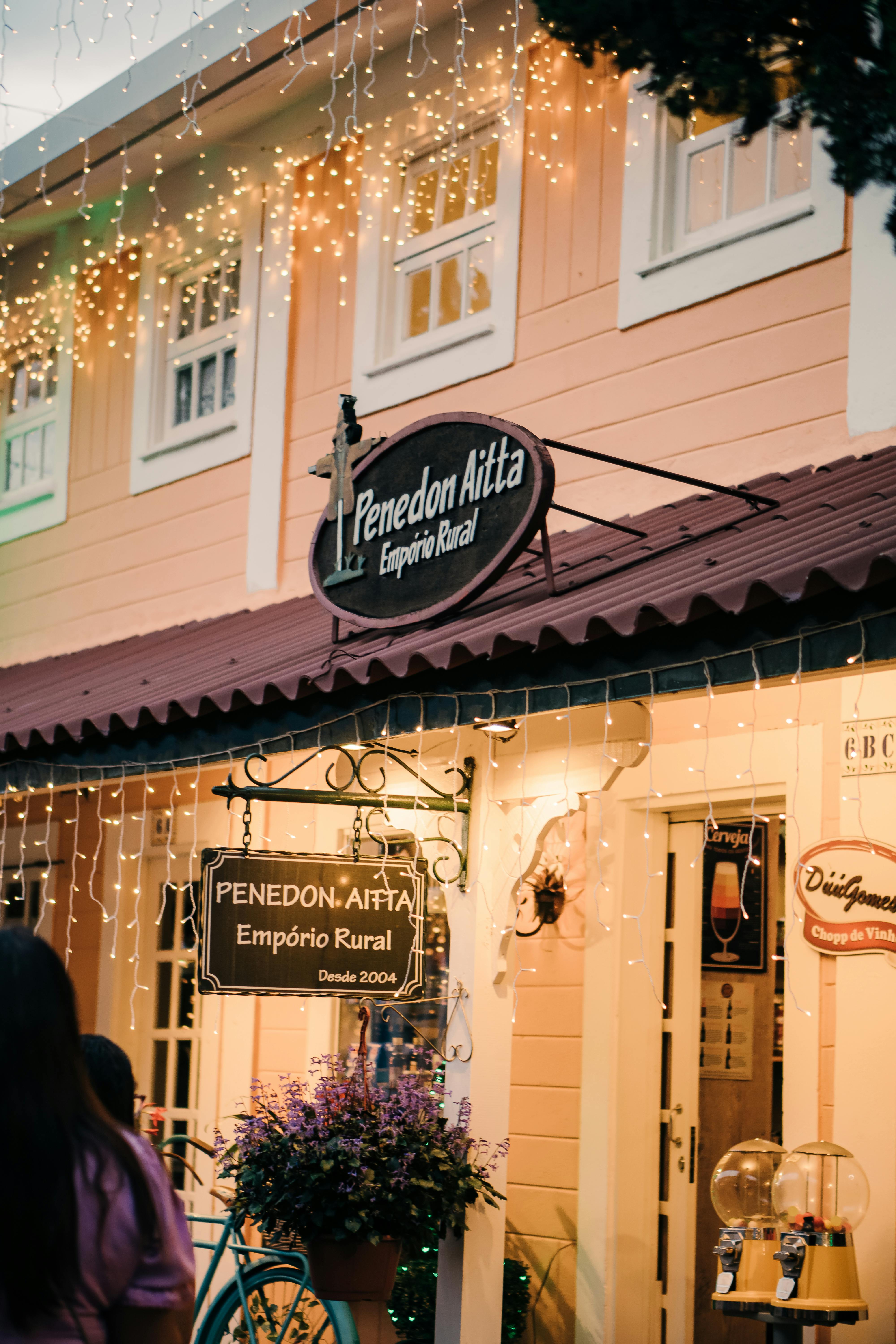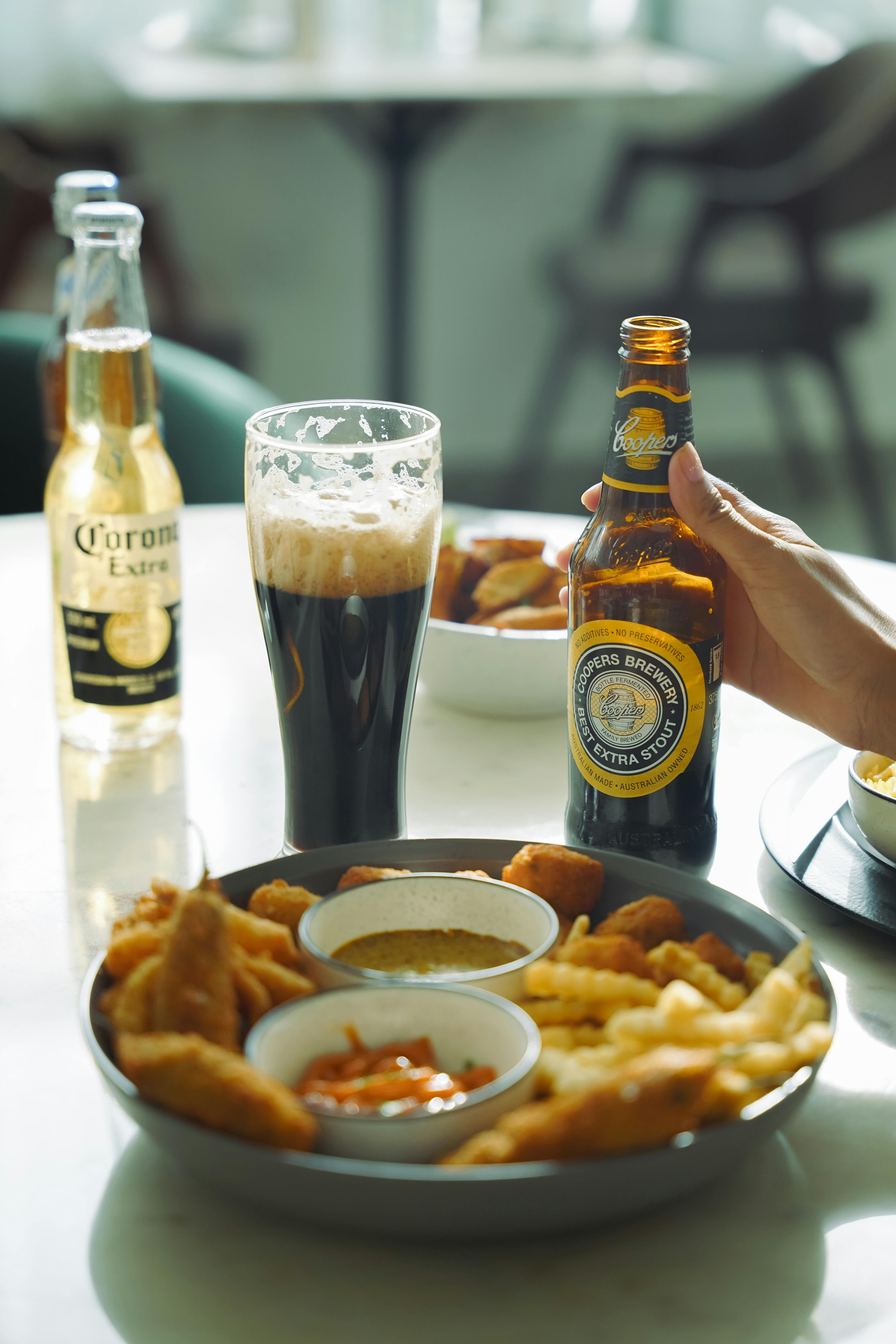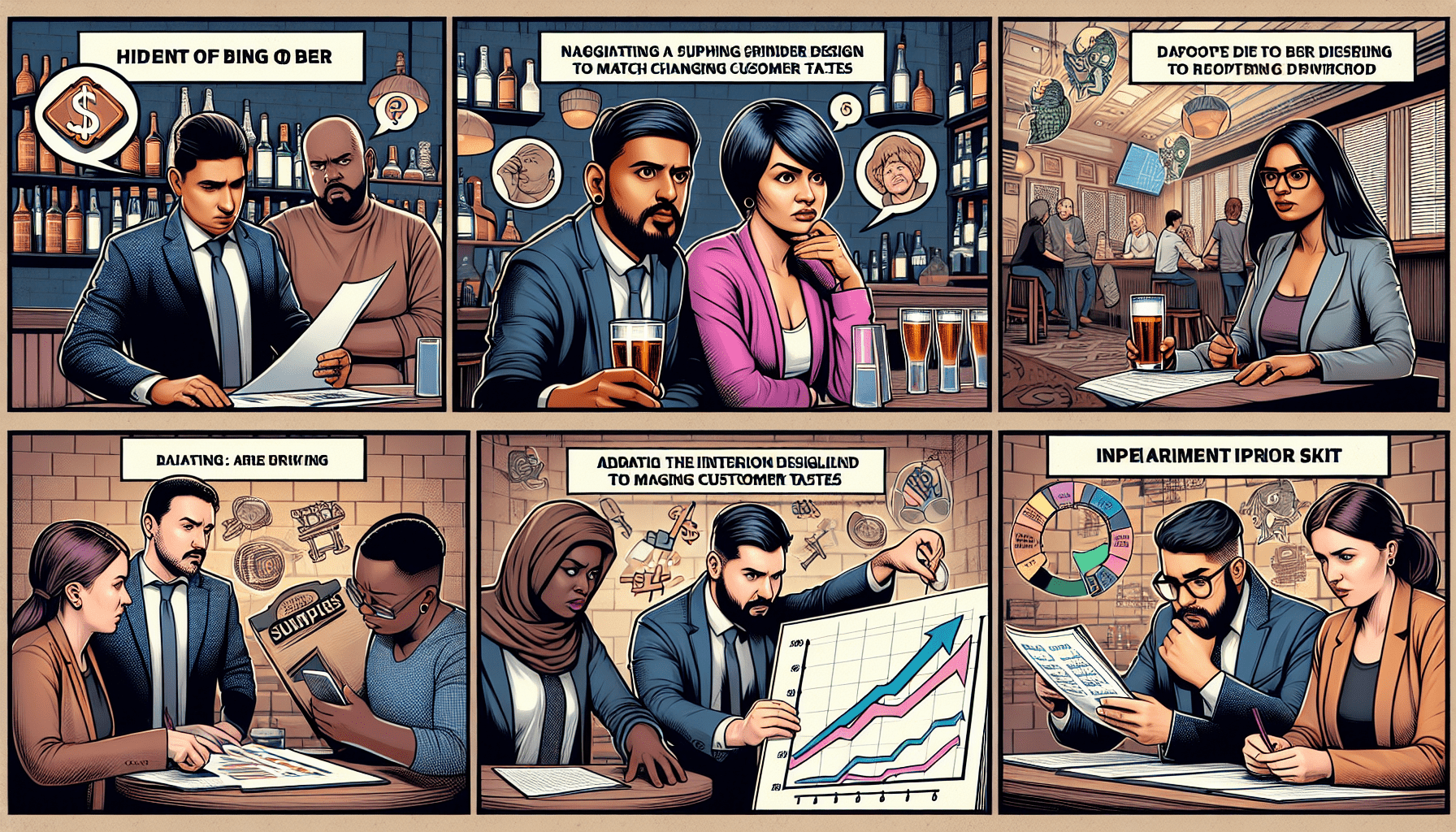Owning a bar or pub can be an exciting venture, but it also comes with its fair share of challenges. From managing staff and maintaining a lively atmosphere to keeping up with ever-changing regulations and competing with the rising popularity of home entertainment, bar and pub owners face a variety of obstacles. In this article, we will explore some of the top challenges that these entrepreneurs encounter on a daily basis, and discuss potential solutions to overcome them. Running a bar or pub can be an exciting and rewarding experience, but it also comes with its fair share of challenges. From obtaining the necessary licenses and complying with regulations to dealing with rising costs and managing staffing issues, there are several hurdles that bar and pub owners need to overcome. In this article, we will explore the top challenges faced by bar and pub owners and discuss strategies to address them effectively.
1. Licensing and Regulations
Obtaining liquor license
One of the main challenges faced by bar and pub owners is obtaining a liquor license. The process can be complex and time-consuming, involving various paperwork, inspections, and fees. It is crucial to understand and comply with the legal requirements in your jurisdiction to ensure a smooth license application process.
Complying with health and safety regulations
Health and safety regulations are of utmost importance when running a bar or pub. Meeting the required standards and ensuring a safe environment for your customers and staff can be a significant challenge. Regular inspections and staff training are essential to maintain compliance and prevent any potential disruptions to your business.
Dealing with noise restrictions
Noise restrictions can pose a challenge for bar and pub owners, especially those located in residential areas. Balancing the need for lively entertainment and music with respect for the surrounding community can be a delicate task. Implementing soundproofing measures and monitoring noise levels can help mitigate any conflict and maintain positive relationships with neighbors.
2. Rising Costs
Increasing rent and property taxes
One of the significant challenges faced by bar and pub owners is the increasing cost of rent and property taxes. As the demand for prime locations continues to rise, landlords take advantage by raising rents. Coupled with rising property taxes, this can put a significant strain on the profitability of your establishment. Negotiating rental agreements and exploring cost-saving options, such as downsizing or sharing spaces, can help alleviate this challenge.
High alcohol prices
High alcohol prices can be a barrier to attracting customers, especially in a competitive market. As a bar or pub owner, you must navigate the delicate balance between maintaining profitability and offering competitive prices. Exploring different suppliers and negotiating favorable pricing agreements can be effective strategies to combat this challenge.
Expensive insurance coverage
Running a bar or pub comes with inherent risks, and insurance coverage is essential to protect your business and assets. However, insurance can be costly, and navigating the various coverage options can be overwhelming. Seeking advice from professionals specializing in the hospitality industry can help you find the right coverage at a competitive price, ensuring you are adequately protected without jeopardizing your bottom line.
3. Staffing Issues
Finding qualified and reliable staff
Hiring qualified and reliable staff is a crucial aspect of running a successful bar or pub. However, finding suitable candidates can be challenging, especially in a competitive job market. Developing a strong recruitment strategy, leveraging online job platforms, and offering competitive wages and benefits can help attract top talent to your establishment.
Staff turnover and training costs
High staff turnover can be a common issue in the hospitality industry, resulting in increased training costs and disruptions to operations. To mitigate this challenge, investing in training programs and creating a positive work culture can help retain employees. Providing opportunities for growth and regular performance evaluations can also contribute to employee satisfaction and reduce turnover.
Managing staff schedules
Efficiently managing staff schedules is essential for maintaining smooth operations and ensuring adequate coverage during peak hours. Using scheduling software or apps can streamline the process, making it easier to assign shifts, manage time-off requests, and ensure fairness. Clear communication and flexibility in scheduling can also contribute to higher staff morale and productivity.
4. Competition from Other Establishments
Attracting customers in a saturated market
In a saturated market, attracting customers can be a significant challenge for bar and pub owners. Differentiating yourself from the competition with a unique ambiance, quality offerings, and exceptional customer service can help entice people to choose your establishment over others. Engaging in targeted marketing and promotional campaigns can also help increase visibility and draw new customers.
Dealing with new trendy establishments
As trends in the bar and pub industry evolve, new establishments catering to specific niches may emerge. Adapting to these trends while staying true to your brand can be a balancing act. Keeping a pulse on the latest industry trends, regularly updating your menu and drink options, and offering specials or themed nights can help attract customers and remain competitive in the market.
Price wars with competitors
Competing solely on price can be detrimental to the long-term sustainability of your business. Engaging in price wars with competitors can lead to a race to the bottom, impacting profitability and potentially compromising the quality of your offerings. Instead, focus on providing unique experiences, quality products, and exceptional customer service to set yourself apart from the competition.
5. Changing Customer Preferences
Adapting to evolving consumer tastes
Customer preferences can change rapidly, making it essential for bar and pub owners to adapt their offerings accordingly. Staying ahead of trends and embracing new flavors, ingredients, and drink styles can help attract customers and keep them coming back. Engaging with your customers through feedback and surveys can provide valuable insights into their preferences and help guide your menu and drink innovations.
Offering a diverse menu and drink options
Diversity and variety in your menu and drink options are key to appealing to a broader customer base. Offering a range of vegetarian, vegan, and gluten-free options can cater to dietary restrictions and preferences. Creating signature cocktails and rotating craft beer selections can also attract customers seeking unique experiences and flavors.
Appealing to younger demographic
Catering to the younger demographic, such as college students or young professionals, can be a challenge for bar and pub owners. Creating a vibrant and energetic atmosphere, hosting themed nights or events targeted at this demographic, and utilizing social media platforms can help capture their attention and build a loyal customer base.
6. Marketing and Promotion
Creating effective marketing strategies
Marketing is crucial for attracting new customers and increasing awareness of your bar or pub. Developing effective marketing strategies that align with your target audience and business goals can be challenging. Utilizing traditional marketing channels such as print advertisements, as well as leveraging digital platforms like social media, online directories, and email marketing, can help increase visibility and drive foot traffic to your establishment.
Utilizing social media and online platforms
In today’s digital age, social media and online platforms play a vital role in promoting businesses. Bar and pub owners can leverage platforms such as Facebook, Instagram, and Twitter to engage with customers, share updates about events or specials, and showcase the unique aspects of their establishment. Collaborating with influencers or running online contests can also help create buzz and attract new customers.
Organizing events and promotions
Hosting events and promotions can be an effective marketing strategy to drive traffic to your bar or pub. Whether it’s live music performances, themed parties, or happy hour specials, organizing unique events can create a buzz and attract a diverse audience. Collaborating with local businesses or organizations can also help expand your reach and create mutually beneficial partnerships for cross-promotion.
7. Managing Inventory and Stock Control
Avoiding overstocking and wastage
Proper inventory management is essential to minimize costs and avoid overstocking or wastage of perishable items. Implementing an inventory control system that includes regular stocktaking, tracking sales patterns, and forecasting demand can help optimize your inventory levels. Additionally, establishing relationships with reliable suppliers and negotiating favorable terms can ensure a consistent supply of popular items without excess stock.
Ensuring consistent supply of popular items
Running out of popular items can be frustrating for both customers and staff. Maintaining consistent stock levels of high-demand products can be a challenge, especially if you have limited storage space or face supply chain disruptions. Developing relationships with multiple suppliers and having backup options can help ensure a consistent supply and minimize the impact of unforeseen circumstances.
Implementing proper inventory management systems
Investing in an inventory management system can streamline your operations by automating stock tracking, reordering, and monitoring expiration dates. These systems can also generate reports that provide insights into your stock performance, allowing you to identify trends, optimize purchasing decisions, and reduce waste. Training staff on utilizing the system effectively is crucial to maximize its benefits and streamline your inventory management processes.
8. Dealing with Drunken and Disruptive Customers
Maintaining a safe and welcoming environment
Ensuring a safe and welcoming environment for your customers is a top priority as a bar or pub owner. Implementing strict policies against disorderly conduct and training staff to manage situations calmly and efficiently can help maintain a positive atmosphere. Conducting regular staff training on responsible alcohol service and conflict resolution techniques can empower your employees to mitigate issues and handle difficult situations professionally.
Handling incidents and conflicts
Despite your best efforts, incidents and conflicts may occasionally arise involving drunken or disruptive customers. It is essential to have clear protocols in place to handle such situations, including contacting security personnel or local law enforcement if necessary. Promptly addressing incidents and providing support to affected customers can help build trust and demonstrate your commitment to their safety.
Preventing underage drinking
Preventing underage drinking is not only a legal obligation but also a moral responsibility for bar and pub owners. Implementing robust age verification protocols, such as requiring valid identification for all customers, can help prevent underage individuals from accessing alcohol. Training staff to recognize fake or altered identification and regularly reviewing compliance with age restrictions is essential to avoid legal and reputational issues.
9. Maintaining Consistent Quality
Working with suppliers for quality ingredients
Maintaining consistent quality in your food and drink offerings relies on working closely with your suppliers. Establishing strong relationships with trusted suppliers ensures a steady supply of quality ingredients. Regular communication, site visits, and quality inspections can help you maintain high standards and address any issues promptly. Seeking feedback from customers and conducting taste tests can also help ensure that your offerings consistently meet their expectations.
Training staff for consistent preparation
Consistency in food and drink preparation is key to providing a memorable and reliable experience for your customers. Ensuring that your staff is well-trained and familiar with your recipes and procedures is crucial. Regular training sessions, detailed recipe cards, and monitoring the preparation process can help maintain consistent quality across all your offerings.
Regular maintenance of equipment and facilities
Equipment breakdowns and facility issues can disrupt operations and impact customer experience. Regular maintenance and inspections of your equipment, such as taps, refrigeration units, and kitchen appliances, are essential to prevent unexpected failures. Establishing a maintenance schedule, promptly addressing repair needs, and training staff to identify and report equipment issues can help mitigate this challenge and ensure the smooth running of your bar or pub.
10. Legal Liabilities
Avoiding legal issues such as overserving alcohol
Overserving alcohol can lead to serious legal consequences, including fines, suspension, or revocation of your liquor license. Training your staff to recognize signs of intoxication and practicing responsible alcohol service techniques is crucial. Implementing strict policies and procedures to ensure that customers are served responsibly can help mitigate the risks associated with overserving.
Managing liability for accidents or injuries
Accidents or injuries can happen in any business, and bars and pubs are no exception. Managing liability and ensuring that your establishment is adequately insured is essential. Regular risk assessments, maintaining a safe environment, and having comprehensive general liability insurance can help protect your business from potential legal claims and financial repercussions.
Understanding employment and labor laws
Compliance with employment and labor laws is crucial for bar and pub owners to avoid legal issues and liability. Understanding regulations related to hiring, minimum wage, working hours, employee benefits, and health and safety is essential. Seeking legal advice and staying up to date with changes in labor legislation can help ensure that you are meeting your legal obligations as an employer.
In conclusion, running a bar or pub comes with its fair share of challenges. From navigating licensing and regulations to managing rising costs, staffing issues, and changing customer preferences, bar and pub owners need to be prepared to address a variety of hurdles. By implementing effective strategies, such as developing strong recruitment practices, utilizing digital marketing platforms, and investing in inventory management systems, bar and pub owners can overcome these challenges and create a successful and thriving establishment.





